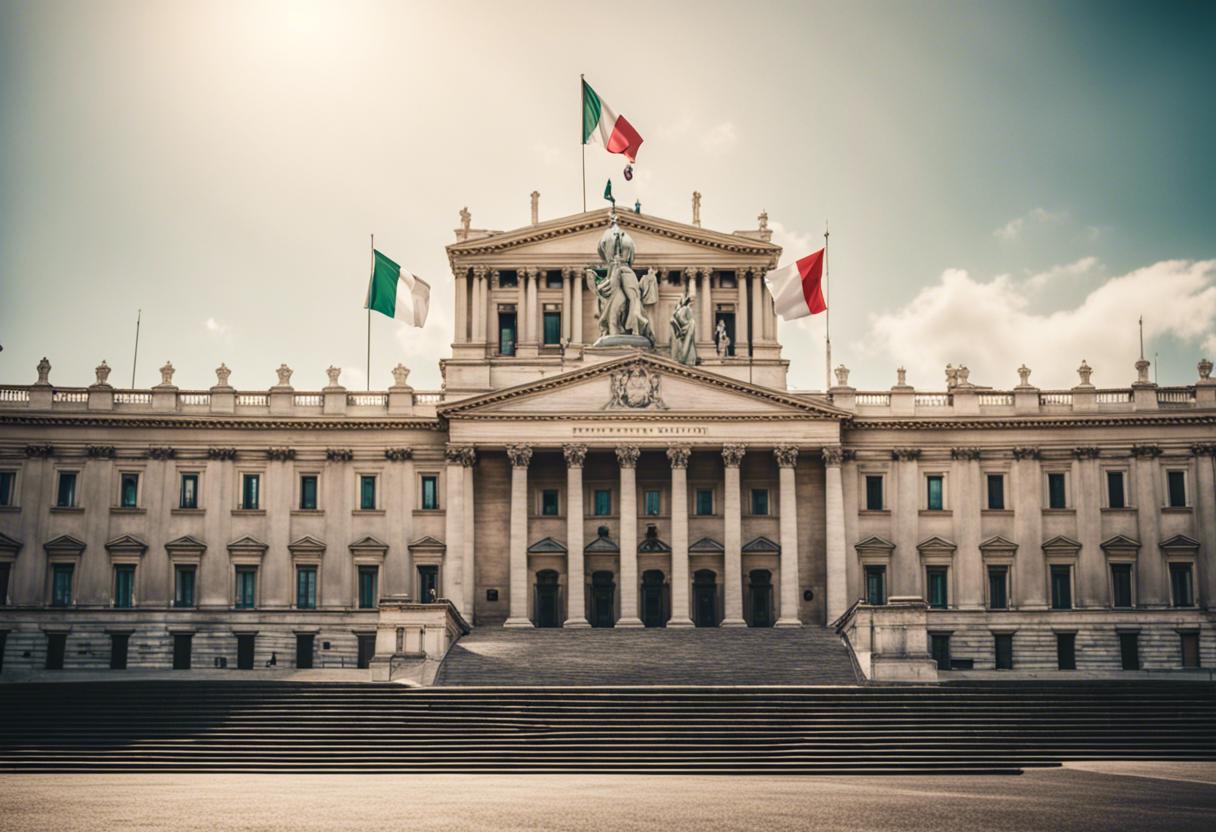In the currently barren international political landscape, largely devoid of visionary or principled leaders, there’s a natural temptation to look back and seek more robust political models from history. However, this approach is not without its risks. As historian AJP Taylor once noted, there’s a danger of overly romanticizing past figures, inflating their significance beyond what they truly deserve. One such figure who hasn’t received due recognition within the political sphere of 20th century Europe is Alcide De Gasperi, who is the central figure of this book.
Mark Gilbert’s Italy Reborn: From Fascism to Democracy addresses this oversight. It’s an engaging and articulate read that was due to be written. It is possible that for the first time, in a comprehensive English language edition, various unfounded prejudices about 20th-century Italy are successfully disputed. Gilbert’s book thoroughly documents a revisionist appreciation that restores the standing of De Gasperi, the Christian Democrat statesman who between 1945 and 1953 established the groundwork for a modern Italy rooted in a dynamic and lasting democracy embodying the voting rights of 90 per cent of its citizens.
Furthermore, he guided his nation from the intoxication of communism, heavily financed by Moscow and greatly favoured in several sectors, directing Italy into a European context. Alongside his friend and ally Konrad Adenauer, he played a key role constructing the circumstances that resulted in the creation of the European Economic Community which eventually led to the emergence of the European Union, with Italy as a founding member.
Typically, looking to impactful Italian leaders from the 20th century brings our attention to the most negative and damaging figures like Benito Mussolini. Few pay heed to De Gasperi, an Italian leader who bore the responsibility of résurrecting Italy from the grim aftermath of Mussolini’s catastrophic twenty-year reign. Rising from the ashes, he successfully spearheaded a frail government through the period of the Constituent Assembly which introduced a constitution enshrining democratic values and newfound societal reform aspirations rapidly and effectively. This constitution still defends against fascist tendencies while serving as a vibrant, inclusive structure guiding the workings of the state and its regions.
After a public vote decided on the monarchy’s dissolution, de Gaspari acted assertively, persuading the king to retire. Despite possessing only a tenuous majority, as the UK equivalent of prime minister, his profound and enduring economic initiatives involved significant agrarian and societal reforms. In collaboration with Einaudi, he implemented policies controlling inflation and assuring the lira’s worth. These policies, along with others, reshaped Italy from its state of dismay post-Mussolini and outsider status into a thriving industrial country and recognised populace, effectively operating as a market economy at the core of Europe.
De Gaspari is an anomaly in the contemporary political landscape, which emphasises individual character and soundbite while lacking depth and long-term perspective. Born in 1881 in Trentino, an area under Austro-Hungarian rule, he was a proficient German speaker and a deeply religious Catholic who spearheaded the Italian Popular party before Mussolini incarcerated him. He was thoughtful and cutting, not an impressive public speaker, but a pragmatic man of unquestionable integrity who was not afraid to make challenging decisions.
Moving away from esteemed communist leader Palmiro Togliatti, as well as denouncing the neo-fascist MSI – Movimento Sociale Italiano, gained him the financial backing of America and considerable political influence. His decisions didn’t sit well with Pope Pius XII, due to the rising fear of increased communist influence within Italy.
Despite the unstable circumstances in which he was operating, often described metaphorically as ‘walking a tightrope’, de Gaspari successfully engineered an economic miracle. Through deliberate state investment, de Gaspari gave rise to economic prosperity which resulted in Italy becoming one of Europe’s fastest-growing countries within a decade. The booming economy allowed for the mass production of scooters and Fiat mini-cars, and cemented Italy as the birthplace of the “dolce vita” lifestyle of Rome in the 50s and 60s.
Nonetheless, de Gaspari’s early triumphs gradually bore the seeds of his downfall. His insistence on an electoral law prioritising centrist parties lead to his political decline in 1953, an error he swiftly recognised. His health continuously declined, and within months he passed away, having left his post.
Although his departure painted a gloomy picture of his tenure, de Gaspari’s legacy and influence on his country have remained profound. Under his leadership, Italy enacted robust protocols which arguably lessened the adverse impact of the poor governance of his successors, namely Giulio Andreotti and later, Silvio Berlusconi. Professor Gilbert argues that if it weren’t for de Gaspari’s solid groundwork, Italy’s democratic system wouldn’t have weathered the storms of the successive decades.
It is undoubted that de Gaspari was principally in charge of securing these robust foundations of Italy’s democracy. John McCourt, the current rector of the University of Macerata, holds him in high esteem.

